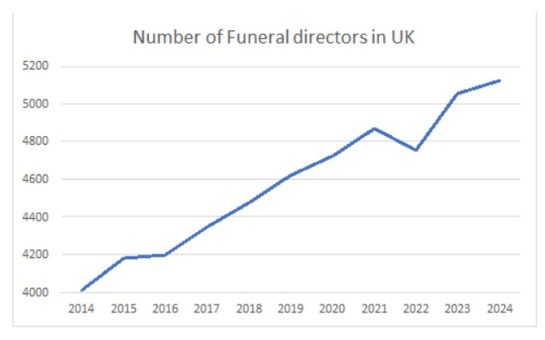An Atherton teenage girl who took a fatal overdose of insulin may have been taking the hormone as an aid to lose weight, an inquest heard.
Charlie Dunne, 19, a former church Rose Queen injected herself with an insulin pen belonging to her diabetic boyfriend Terence Rhoden whilst he attended a hospital appointment.
He later found her collapsed at their home in Atherton, Greater Manchester on his return five hours later.
Charlie was rushed to hospital but died six days later after suffering brain damage as a result of the overdose.
Detectives later investigated claims by the girl’s family that Mr Rhoden, 28, confessed to injecting Charlie with insulin after hearing it helped weight loss – but officers found no evidence Mr Rhoden himself was involved in his girlfriend’s death.
The hearing in Bolton was told Charlie, a trainee hairdresser and a former college performing arts student, had been a ‘bubbly’ girl who was a regular at a local methodist church and was made Rose Queen due to her fundraising for charities.
But the youngster suffered from mood swings and would cry for attention and had claimed she had miscarried a child and was unable to conceive – even though there was no medical evidence to support her claims.
She had tried to take pills during a previous relationship and tragedy struck on December 17 after she had been out playing darts with friends for her local pub team.
During the match she suffered a panic attack but soon returned to normal and was planning events for the future – only to return home ‘agitated’ and threatening to take tablets.
Mr Rhoden said upon her arrival she woke him up and told him to leave, adding that he was ‘too good for her’.
He told the inquest: “She woke me up by saying she wanted me to leave because I was too good for her and some other stuff.
“She wanted to take some painkillers and I told her she couldn’t take whilst drinking and moved them. We went into the living room and talked and she calmed down. She fell asleep on the couch.”
He left her around 7am to attend the appointment and although he left her on the floor, she had been alive when he kissed her head.
But during the morning he tried calling and texting her in order to rouse her for her college classes but had got no response.
After returning from his hospital appointment at around noon Mr Rhoden found Charlie on the living room floor unconscious and he realised she had taken his insulin.
He said: “I went into the lounge, I saw Charlie breathing heavily, she was blue in the face with foam coming out of her mouth. She was still on the floor.
“I thought she was having an allergic reaction. I saw my insulin pen on the couch down the cushion kind of sticking out. It was a brand new one because the other was in my pocket.
“The box was in the bin. When I found the insulin pen it was empty.”
He called Charlie’s mother who lived across the street but the teenager was in a ‘deeply unconscious state’ and was a three on the Glasgow Coma Scale – the lowest and most serious for blood sugar levels.
Upon arrival at Royal Bolton Hospital, doctors confirmed the diagnosis that she had taken an overdose of insulin.
She did not respond to glucose and was taken to the emergency department but died on December 23.
Mr Rhoden told the inquest that he had been insulin dependent since the age of 21 and would need to take four daily injections.
He said he would use the 100ml pens which he kept in the fridge and can contain between 60 and 100 doses, with one pen lasting a week.
He added that Miss Dunne would help give him injections and at the diabetic centre told her how to administer the injections in case he had an attack, adding she had wanted to ‘learn more about it’.
The hearing was told Mr Rhoden talked about insulin injections with Charlie’s uncle Andrew Dunne as she was being kept on a ventilator in hospital the day after her admission.
Under questioning Mr Rhoden said: “I have never injected her at all. He asked me why Charlie would take insulin and I said the only thing I have heard is people take it to lose weight.”
He said he had no knowledge of her ever injecting herself either.
But Mr Dunne, a builder told the inquest: “I asked how she had ended up in hospital and he said it was an overdose of insulin. I said ‘what did she take that for’ and he said something about they had heard somewhere, like the pub, that insulin could help you lose a bit of weight.
“He did say that two week prior he had given her an injection to see if it worked. I don’t think it was mentioned again.”
The inquest heard Mr Dunne also told Charlie’s father Philip about the conversation he had with Mr Rhoden.
Philip told the hearing: “He said he was having a conversation with Tez and said something about insulin and he had injected her two weeks previous, something about they had seen on the internet that it helped you lose weight.
“Charlie would never take her own life and would never take drugs and as far as I’m aware was very anti-drugs.”
In a statement Charlie’s mother Michelle said she learnt of her daughter’s overdose in a phone call from Mr Rhoden.
She said she ran to the house and was told by Mr Rhoden, ‘she has taken my insulin’ adding ‘I’m sorry I’ve not looked after her well enough’.
Mrs Dunne added that her daughter would have known ‘how dangerous’ it was to take insulin and would ‘never do anything like suicide because it was selfish and all it does is upsets the family left behind’.
Doctors said the insulin was injected between 7am and noon on December 17.
Dr Emma Wheatley told the inquest that for someone who was not a diabetic to take insulin it would cause blood glucose levels to drop ‘very rapidly’.
Det Insp Paul Rollinson of Greater Manchester Police said the insulin pen had never been recovered as it was thought to have been disposed of at the hospital.
But he confirmed Mr Rhoden’s account was correct and an examination of Miss Dunne’s phones showed nothing to suggest the relationship was stormy.
Coroner Mr Alan Walsh recorded a misadventure verdict saying: “She had problems with periods of mood changes, if she had a drink she could be very open and bubbly or may be a little down.
“She started to talk about not being good enough for him, previous references to not being able to have children. Maybe her mood was affected when she had a drink.
“With a previous boyfriend she threatened to take tablets, these are believed to be cries for attention and not any intention to harm herself.
“She was looking forward to Christmas, enjoying a course doing hairdressing. However on occasion she might have been the type of person who cried for attention.”
He said the conflict in events according to Mr Rhoden and Mr Dunne were ‘not relevant’ and that there was no evidence that Mr Rhoden was involved in events leading up to her death.
He added: “It is likely that Charlie administered the insulin to herself during that period by gaining the insulin pen from the fridge and injecting herself. There is evidence she would have known how to inject.
“What she would not know is sadly the catastrophic effect of an insulin injection even if only one single injection on a non-diabetic person. She talked about losing a baby, not able to have children, that shows a change in mood.
“The injection of insulin without appreciating the effect of insulin brought about her death. It’s likely that this was a cry for attention that had the most dramatic and catastrophic consequence.”
Story via Cavendish Press
Image courtesy of Facebook, with thanks



